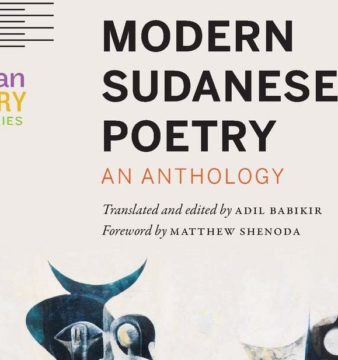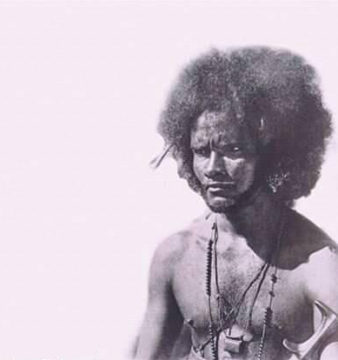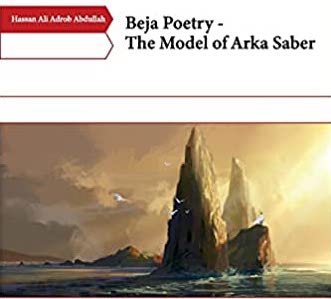The Self in the Poetry of Safia Elhillo and Chandramohan Sathyanathan
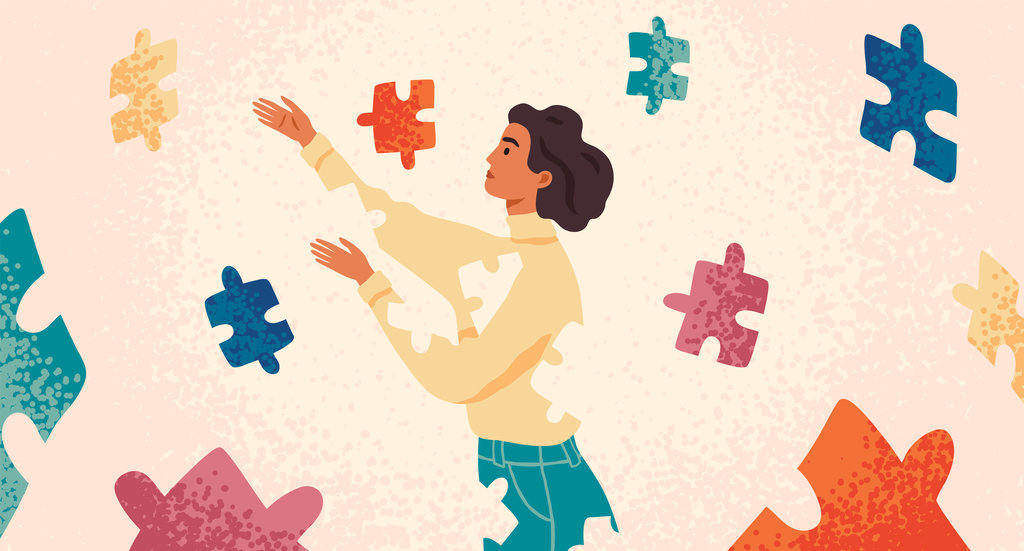
In a world that is full of stereotypes of gender, race, religion, and caste, intersectional solidarities are increasingly becoming important. Poets and writes from the global south are engaged in the process of forging bonds across spatial borders. Language, functions as a medium of synthesis, rather than differentiation. Translation helps to merge distinct groups together. Love, affection, solidarity and care are evoked in poetry. These emotions gathered in poetry, serve to revitalise communities and their hidden strengths. The poetic self is universal throughout the world.
The oppressed groups in India called Dalits, find their global counterparts in the Afro-Americans of USA. The same trajectory can be traced between various oppressed groups of migrants, refugees, minorities, segregated groups worldwide.
Chandramohan Sathyanathan is a Dalit poet from Kerala in India. His poems have found a national and global audience for their powerful articulation of the voice of the oppressed and the pain of exclusion. Just like the Jazz musicians of American South such as Miles Davis and John Coltrane, Sathyanathan expresses the pain of the the Dalit community in India. He was honourary writing fellow of the International Writers Program (IWP) at the University of Iowa. His latest collection of poems “Love After Babel” has been published from Canada by Daraja Press. However, it was with the anthology called “Letters to Namdeo Dhasal” that Sathyanathan stormed the bastions of Indian English poetry with a freshness of approach and politics. He has emerged as a major voice in Indian English poetry.
Safia Elhillo is a Sudanese-American poet who holds an MFA from the New School in New York. She is the author of The January Children (University of Nebraska Press, 2017). This debut work won her the Sillerman First Book Prize for African Poets plus an Arab American Book Award. She also wrote other works, Girls That Never Die (One World/Random House 2021), and the novel in verse, Home Is Not A Country (Make Me A World/Random House, 2021). Elhillo was nominated for the prestigious Pushcart Prize nominee. She was co-winner of the 2015 Brunel International African Poetry Prize. Elhillo whose work appears in Callaloo and the Academy of American Poets’ Poem-a-Day series, among others, and in anthologies including The BreakBeat Poets: New American Poetry in the Age of Hip-Hop and The Penguin Book of Migration Literature was listed in Forbes Africa’s 2018 “30 Under 30”. Her work has been translated into multiple languages. She co-edited the anthology, Halal If You Hear Me (Haymarket Books, 2019) with Fatimah Asghar.
The self, particularly the oppressed self, in migration is a constant metaphor in the work of Elhillo and Sathyanathan. Both poets are painfully aware of their ostracisation and victimisation that they experience as outsiders or migrants. The collapse of traditional communities adversely affects underprivileged groups more than others.
As a Sudanese-American, Elhillo poetically invokes the double consciousness inherent in the migrant experience. Elhillo writes of the self and its indeterminacies:
‘i dream my alternate selves
each with a face borrowed from photographs of
the girl who became my grandmother
brows & body rounded and cursive like Arabic‘
Elhillo foregrounds her female identity, just as Chandramohan upholds his identity in his verse. Elhillo writes about the predatory male gaze and the sexualisation of youth very powerfully in the poem “1000”, part of a larger oeuvre:
‘though no one ever did i feel creaking
and ancient in the repetition
of it all i feel my girlhood gone for
generations my entire
line of blood crowded with exhausted
women their unlined faces‘
Chandramohan Sathyanathan also finds the predicament of the subaltern self in India, poetic. He espouses a radical openness towars the `other’. This quality of openness facilitates a conversation with the oppressor. Chandramohan deftly weaves in contradictions and multiple layers into his verse. He writes:
‘I am the poet, fixing images
From the abyss of time
Into the canvas of the past
Where myth and history are miscible
With the precision and swiftness of
A forked-tongue cobra strike’
In “Love After Babel”, Chandramohan deals with the paradox of identity in the contemporary world in his poem, “Thirteen Ways of Look at a Black Burkini”. It is a take on his own well-appreciated poem “Thirteen Ways of Looking at a Black Beard”, which itself was a playful riff on Wallace Steven’s “Thirteen Ways of Looking at a Blackbird”. The poem is ironic, even sarcastic in tone. The poem engages with the theme of that perpetually oppressed image in our contemporary world-the Muslim woman clad in hijab. For the poet, the oppression of women merges into poetic language. Sathyanathan writes:
Burkini is a language
Terrifying those ignorant of its text
Cops patrol her tan lines
Like dams patrol
Rivers flowing above danger marks
All you need is in that bag
Change into a garment
More palatable for the cops in uniform
In another poem, “Other”, Sathyanathan writes about the violence of the prejudiced gaze of the other:
‘In the palette of his hieroglyphic expressions
I decipher a codebook of prejudice
In the archive of exposed crimson veins in his cornea
I retrieve a manuscript of contempt
In the superlative adjectives of his flattery
I discover a verb of deception
In his effervescent smiles
I sense a tinge of alienation
In his adoring synonyms of deification
I deduce the snobbery of denigration
Across the barriers of gender, space and region, these two poets, Safia Elhillo and Chandramohan Sathyanathan, speak to each other, across time. This globalised, universal articulation has been championed by scholars like Achille Mbembe. The forging of south-south cooperation and solidarities paves the way forward into the future.
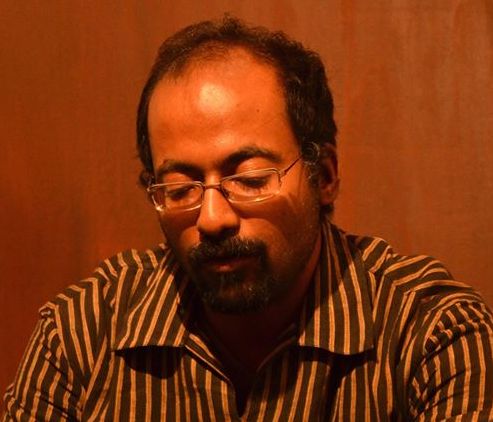
Umar Nizarudeen is with the University of Calicut in Kerala. He was a research scholar at the Centre for English Studies, Jawaharlal Nehru University, New Delhi. In an eclectic career spanning over a decade, he has taught in various colleges of Delhi University, in the University of Kerala and has also worked as staff reporter for the New Indian Express, a national daily. ‘Muse India’, ‘Vayavya’, ‘Culture Cafe’ journal of the British Library are some the journals where his poems have appeared, some of which were also found good enough to be broadcast by the ‘All India Radio’.

